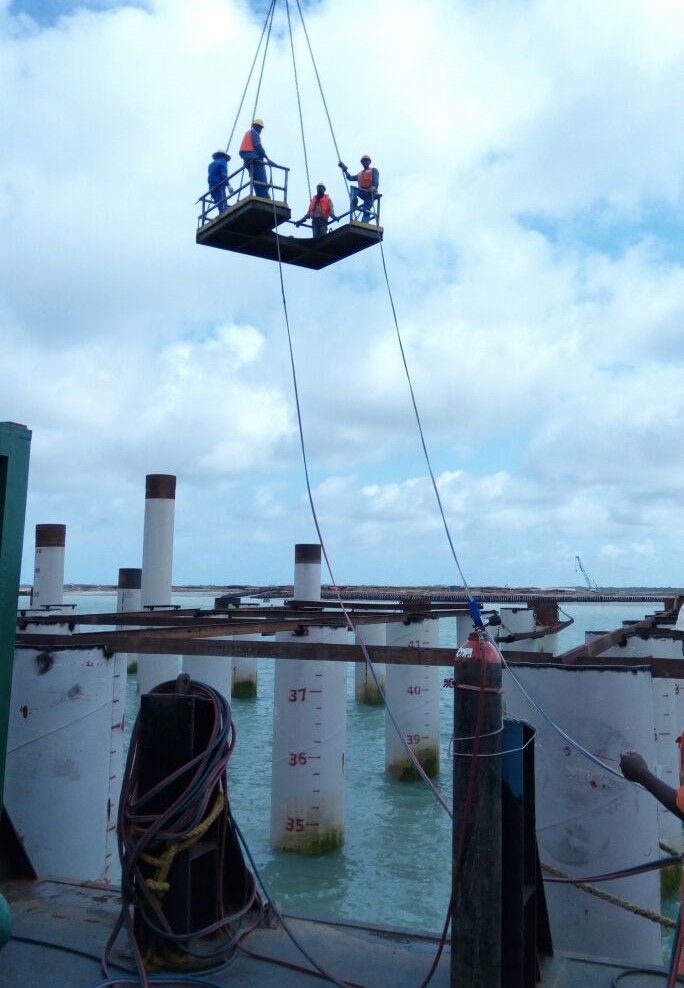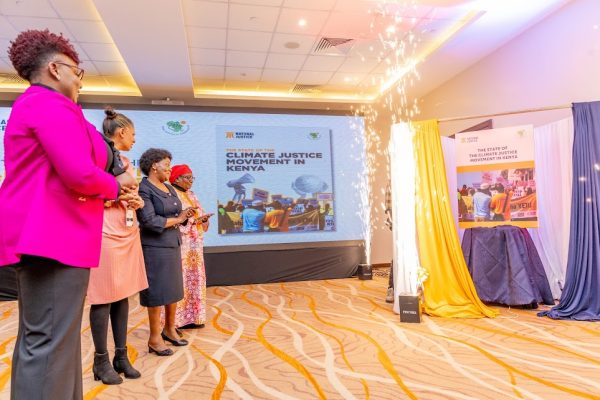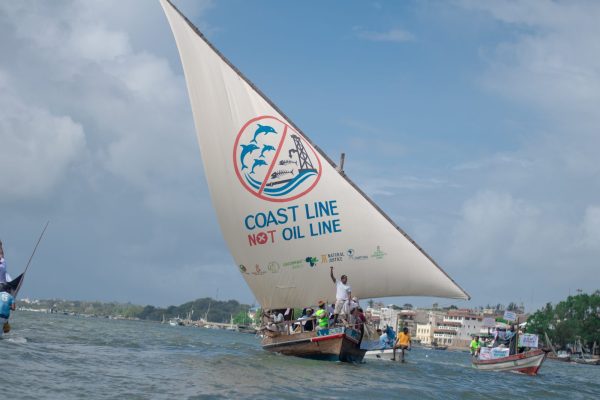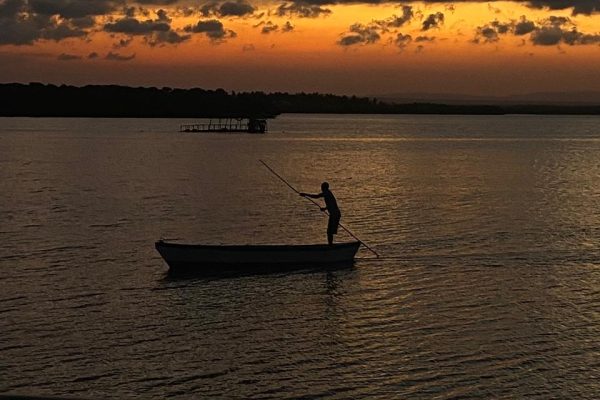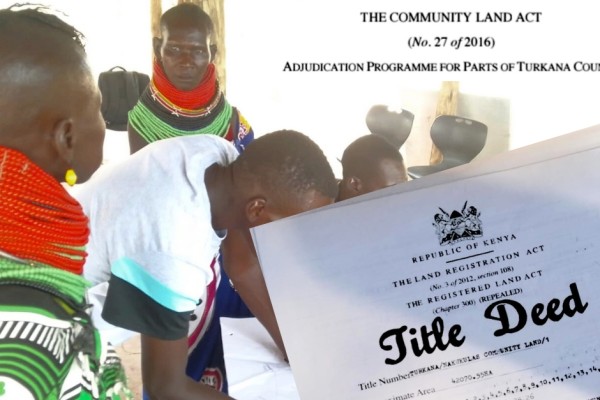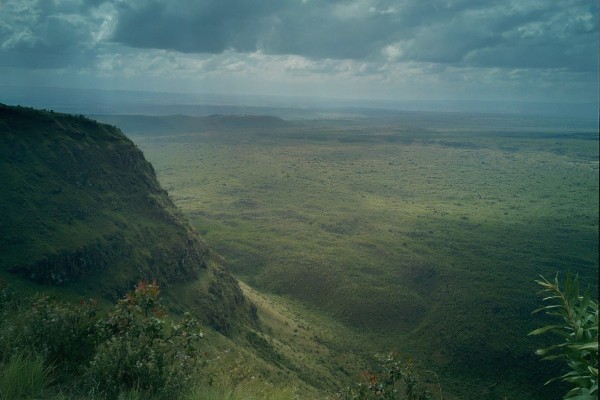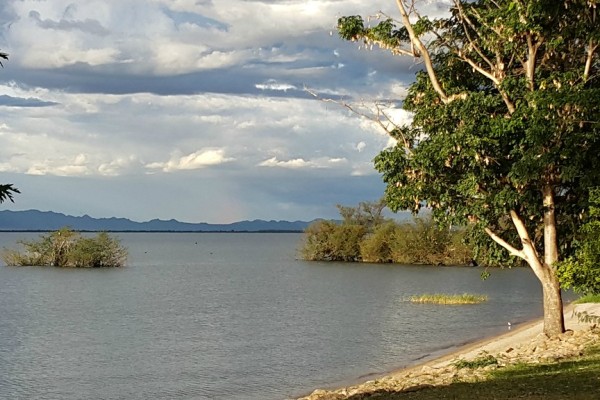Kenya’s coastline stretches for about 300 miles from Lamu, in the far north of the country, down to the south of Mombasa. Lamu is one of the poorest counties in Kenya and its main economic activities are fishing and tourism. After years of being marginalised, the area is witnessing significant new development, with new projects taking place such as the Lamu Port construction, gas exploration, a proposal for a new coal power plant, among others.
This could turn the area into a mega industrial hub. Experts envisage that the developments could generate substantial economic and social benefits; however, they also pose significant risks if poorly executed and could lead to significant and irreversible environmental damage. Lamu is endowed with rich natural assets, such as fisheries, which are under threat.
Natural Justice has been assisting fishing communities in Lamu to challenge two particular developments which could spell the end of the fishing industry.
The Lamu Port Three Berth Project
Started in October 2016, the project area used to be a fishing ground for approximately 4734 local fishers. The project area was sheltered from strong waves, making it a perfect spot for the local fisher communities. They are now displaced and cannot use alternative fishing grounds because they use rudimentary fishing equipment not suitable for other areas.
The fishers are feeling the impacts on their catch size because they have been forced to use a small area adjacent to the port construction site which, in the long run, will also be utilised by the project. Added to this, fish stocks have been reduced due to turbidity in the water caused by dredging activity during the construction. This turbidity was the result of the project’s non-compliance with the law, as well as the EIA license conditions.
The situation has compelled the local fishing communities to hang up their fishing equipment. Additionally, they have no skills to venture into another sector, casting them into poverty.
The fisher community approached Natural Justice for assistance. Together, we read through the Environmental and Social Impact Assessment (ESIA) for the Port. We discovered that turbidity was one of the impacts that will emanate from the project, but also established that the ESIA does not have an Environmental Management and Monitoring plan which could address the impact. We also read through the license conditions and established non-compliance with numerous conditions.
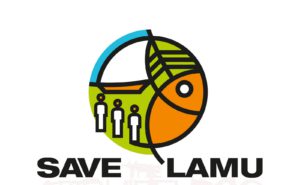 On this basis, we met with fisher groups and jointly drafted and submitted a complaint to the National Environmental Management Authority (NEMA). NEMA did not respond to our letter, nor a follow-up letter. However, we were able to use these complaints in litigation against the port – together with Save Lamu and the Katiba Institute. And we won.
On this basis, we met with fisher groups and jointly drafted and submitted a complaint to the National Environmental Management Authority (NEMA). NEMA did not respond to our letter, nor a follow-up letter. However, we were able to use these complaints in litigation against the port – together with Save Lamu and the Katiba Institute. And we won.
In June this year, the court ruled in favor of the fishers and ordered that compensation be paid to them. The court also remanded the EIA license back to NEMA for re-consideration. At this time, the fishers have yet to be compensated. Unfortunately, the struggle is just beginning.
Proposed Lamu Coal Plant
Kenya is thriving economically and experts have envisaged a growing demand of electricity. The Kenyan government is therefore considering developing coal plants to meet the projected demand. At the moment, Kenya is generating 2300Mw of electricity and using 1900Mw of this, with 400Mw in idle capacity. In 2013, the government declared that they would be developing a coal plant with a capacity to generate 1050Mw in Lamu County, in a very sensitive ecosystem called Kwasasi. The area is also a fishing ground for the local fishing community and located adjacent to the Lamu Port.
We have also noted that the proposed project site is within 60m of the coast high-water mark, which is contrary to the provisions of Kenya’s Survey Regulations.
The project is not welcomed by the residents of Lamu or the local fishing community, who are anxious that the fishing sector will disappear completely. Without new skills, they acknowledge their constraints in generating a livelihood in another sector. They are prone to sinking into poverty and have lost hope that they can sustain themselves with fishing, saying that the proposed coal project will deplete the remaining fish stock; doubling their pain since they are already affected by the Lamu Port construction.
The ESIA for the proposed plant shows that it will employ a cooling system technology which involves siphoning water from the sea and using it to cool the plant. This thermal water is released back into the sea at a higher temperature. This will affect fish stocks and damage the marine ecosystem. It is projected that the impact from the coal plant will affect Dodori National Reserve, which is close to the Kwasasi and Kiunga National Reserves.
Another concern relates to the technology that will be employed to transport coal from the port to the plant. A 15km open conveyor belt will traverse through mangroves forest (a highly sensitive area) to the coal plant site, exposing the sensitive marine ecosystem to coal dust pollution.
The project is yet to kick off as it is being challenged by Natural Justice, Katiba Institute and Save Lamu at the National Environmental Tribunal.
The local fishing communities are yet to receive any training to enable them to generate a livelihood in another sector. We need to stand together and support the fishing communities in their plight.
Nature provides lunch for everyone, only if we control our appetite.
_________________________________________________________________
Said Salim is from Lamu, Kenya. He works with Natural Justice as a community environmental legal officer.

